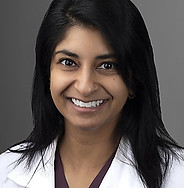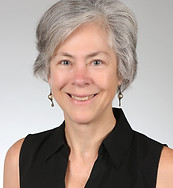
Co-Directors
The Shapiro Institute for Education and Research at Harvard Medical School and Beth Israel Deaconess Medical Center is pleased to announce a Request for Applications for a one-year Rabkin Fellowship in Medical Education for academic year 2026-2027

Anita Vanka, MD

Celeste Royce, MD
Eligibility*
-
Applicants MUST have an HMS appointment as faculty and be able to secure 20% protected time in their schedules (funding for this is partially provided by the fellowship) during AY2026-2027.
*Faculty who have previously completed a medical education fellowship or master’s degree of similar nature need to provide a substantive rationale for why they seek this additional training.
Goals of the Fellowship
Established in 1998 in honor of Mitchell Rabkin, MD, CEO emeritus of Beth Israel Hospital, the Fellowship is the premier faculty development opportunity in the HMS system. It provides individuals with an opportunity to develop the expertise and skills needed to launch or advance academic careers in medical education and educational leadership. The fellowship encompasses the breadth of medical education, from foundational theory to practical application to critical skills necessary for career advancement (mentoring, publishing, change management). Of note, both junior and mid to senior level faculty are encouraged to apply.
The Rabkin Fellowship is directed by Celeste Royce, MD and Anita Vanka, MD. Faculty include the Fellowship Directors and invited experts in medical education who facilitate seminar sessions. Fellowship directors mentor the Fellows in completion of a medical education project during the year.
In this Fellowship, participants will:
-
Enhance their skills as teachers and medical educators
-
Acquire knowledge about foundational and advanced principles of teaching and learning
-
Learn fundamentals of education research and conduct an education research or educational project in an important area of medical education, including UME, GME, and CME/faculty development
-
Learn fundamentals of academic writing and scholarship
-
Learn principles of effective academic leadership and develop skills needed to create change in education programs
-
Become members of a community of educators dedicated to excellence in teaching across the continuum of medical education
-
Critically assess controversial topics within medical education
Rabkin Fellowship content and structure
1. The Rabkin Fellowship involves participation in weekly, 2-hour seminars over the academic year. The fellowship will begin in June 2026 with an introductory meeting followed by individual project meetings and assigned readings over the summer period. In-person group sessions will begin in September 2026 and continue through June 2027. The sessions will run on Thursday mornings from 10am-12pm (36 total sessions). Actual dates of seminars will be determined based on group members’ availability. Given expected weeks during which members of the group are likely to be unable to attend due to vacations, conferences, etc., there will be a subset of “double” sessions running from 8 am – 12 pm to ensure delivery of the full curriculum.
2. The success of the fellowship is dependent upon active participation of all fellows in all sessions. With the exception of medical or family emergencies, fellows must attend all sessions in person. The curriculum covers a broad spectrum of contemporary issues in medical education, including:
-
Educational theories applied to active learning techniques
-
Curriculum development
-
Learner assessment and program evaluation
-
Classroom, case-based, and clinical teaching skills
-
Publishing in medical education
-
Educational leadership
3. Experiential learning is a cornerstone of the Fellowship. Fellows are videotaped while teaching, engage in role plays, lead case-based discussions, and create educational products.
4. Fellows spend the year developing an educational project or research study in medical education. They will identify a dedicated mentor to help guide their project or research work. Beginning in the summer, each fellow will meet with the fellowship director(s) and their project mentor to review the proposal and next steps. All fellows present their projects at a concluding symposium at the end of the fellowship year.
5. Fellows will present their work during opportunities throughout the year, such as the Shapiro Institute Medical Education Week e-poster/Teaching Award Ceremonies (*expected to present) and HMS Medical Education Day (strongly recommended to present).
Project proposals
We give special consideration to applicants whose projects possess the following characteristics: 1) directed at innovative teaching strategies, 2) can be realistically implemented and evaluated, 3) have had a needs assessment performed, 4) represent a generalizable contribution to medical education, and 5) focus on learners in the UME, GME, and/or CME realms, , and 6) have a clearly identified mentor closely involved with the project.
Financial support
Department chairs must commit to protecting 20% of selected faculty’s total work effort toward the Fellowship Program, including securing protected time from their clinical schedules to attend all weekly seminars and complete assignments and project work.
A stipend of $35,000 without fringe is provided to Rabkin Fellows whose primary hospital appointments are at Beth Israel Deaconess Medical Center. The Shapiro Institute disburses the stipend to the fellow’s departmental budget in partial remuneration for the protected time, with further financial arrangements left to the department and the individual fellow; nevertheless, 20% of the fellow’s time must be committed to the fellowship.
Non-BIDMC HMS faculty who are accepted will not receive a stipend from BIDMC but must instead have a commitment of protected time by the sponsoring Harvard-affiliated institution.
Selection process
The selection committee is composed of both HMS and BIDMC educational leadership. There are two rounds; only a subset of applicants will be asked to interview with members of the committee in the second round. Selection criteria include:
-
A track record of accomplishment in and commitment to medical education
-
A current venue for teaching at HMS (e.g., medical students, residents, fellows)
-
Current educational leadership roles and academic potential as a scholar
-
A clear rationale for how the Fellowship will help achieve professional goals
-
A well-articulated, feasible project proposal of broad-based value to the community of medical educators
-
Demonstration of a clear rationale and needs assessment for the proposed project
In choosing the Fellowship class, attention is paid to group balance, specialty, and diversity. Applicants in major program leadership positions, e.g., program or associate program director, course director, will receive special consideration. The Shapiro Institute for Education and Research is committed to fostering an inclusive environment, and we encourage faculty from diverse backgrounds to apply for the Fellowship.
The option for a 1-year deferral may be available if competing obligations or responsibilities arise between the time of applying and being selected as a Rabkin Fellow.
RABKIN FELLOWSHIP IN MEDICAL EDUCATION
REQUEST FOR APPLICATIONS
FELLOWSHIP PERIOD: JULY 1, 2026 – JUNE 30, 2027
INSTRUCTIONS
The following 4 application documents should be sent in a single email to the contact below:
1. Completed application coversheet (page 5 and 6 of doc.)
2. A personal statement describing your interest in medical education and outlining what you hope to gain from the Fellowship
3. A 1-2 page description of a project you wish to pursue during the Fellowship year, including the following elements:
-
Rationale
-
Statement of purpose
-
Background/Needs Assessment
-
Description of the intervention and/or research methodology
-
Potential evaluation strategies
-
Proposed scholarship venues (publications, conferences, etc.) for the project
4. An HMS-formatted Curriculum Vitae
In addition, we require a letter of recommendation and support from your Department Chair or Division Chief sent separately before the deadline. This document must include:
-
An unambiguous statement of commitment to provide 20% FTE protected time away from clinical and other administrative duties during the Fellowship year, particularly at the time of the sessions (Thursday mornings).
-
An acknowledgement that the $35,000 stipend will be supplemented to enable the 20% protected time, plus a description of the financial plan to be implemented to fill the salary gap resulting from the fellowship.
Completed applications are due by Friday, February 13, 2026 by 5pm, including the letter of support. Rabkin Fellowship awardees will be announced in late March 2026.
CONTACT: Kelly Anastasio, Shapiro Institute for Education and Research at HMS and BIDMC, email: kanasta2@bidmc.harvard.edu; phone: 617-667-0900; fax: 617-667-9122
L

Selected Seminar Topics
Historical Issues in Medical Education
-
To discuss the history and major movements within American medical education over the past century
-
To consider current challenges facing us today
Adult Learning Theory and its Application to Clinical Teaching
-
To discuss the major assumptions underlying adult learning theories
-
To reflect on how each of us learns best
Fundamentals of Medical Education Research I & II
-
To provide an overview of education research principles and concepts
-
To explore quantitative and qualitative research methods that may be used to evaluate outcomes in medical education
Best Clinical Teaching Practices
-
To delineate best practices of clinical teaching
Curriculum Development in Medical Education
-
To use a case-based discussion to review the six steps of curriculum development
Effective Questionnaire/Survey Design
-
Introduction to the IRB process for Medical Education Research
Frameworks for Trainee Assessment
-
To become familiar with and apply common frameworks used to assess trainees’ knowledge, skills, and attitudes
Providing Effective Feedback
-
To distinguish between formative and summative assessment
-
To identify sources of evaluative information
-
To recognize elements of effective feedback

